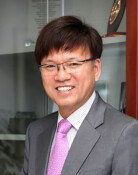Brain Drain Becomes Problem for Korea
Brain Drain Becomes Problem for Korea
Posted November. 19, 2005 08:21,
Ten high-caliber venture company workers switched to foreign companies last year.
Among them, nine worked for the companys own laboratory, and the other was in charge of marketing. All of them were highly educated with more than masters degrees, and were regarded indispensable.
The exodus is not only because of the companys poor performance, but also because of enticements of higher wages and substantial incentives. Whats worse, the Korean chief technology owner (CTO) of the rival foreign firm was so aware of what was going on in Korea that there was no time to cope with the problem.
The venture company suffered a workforce drain, and lost technology. In reality, three of them are being charged with handing over technology to the rival.
The more enhanced scientific technology gets, the more worried people grow about the need to systemically manage intellectual engineering capital.
Brain drain has already begun in cutting edge industries like IT, and few experts in basic science have succeeded in getting a job fitting for them.
Research Lab, a survey company, conducted a poll on 300 workers in Research and Development in domestic companies through November 4 to 7 at the request of this newspaper. The results of the survey indicated that 37 percent of the respondents had been offered a job from foreign companies.
In terms of scholarship, 47 percent of doctorate degree holders, 40.5 percent of masters degree holders, and 25.9 percent of bachelors degree holders were recruited directly or indirectly. That means nearly half of all of Koreas doctors were targeted by foreign companies.
When it comes to the intention to move to foreign companies, 5.3 percent said they were seriously considering it, and 33 percent were deliberating, but had no specific plans. This indicates that four out of 10 would like to transfer to foreign companies when they get a chance at any time.
Another serious problem is the phenomenon that Korean students educated overseas are reluctant to return to Korea.
According to the Organization for Economic Cooperation and Development (OECD), of foreigners working in Americas universities and labs from 2003 to 2004, the number of Koreans surged by 25 percent from 5,830 in 2000 and 2001 to 7,290, the fastest growth rate of any nation.
The ratio of Koreans among foreign scholars and researchers staying in the U.S. ranks second behind China.
Ki-Jeong Ko koh@donga.com wolfkim@donga.com







